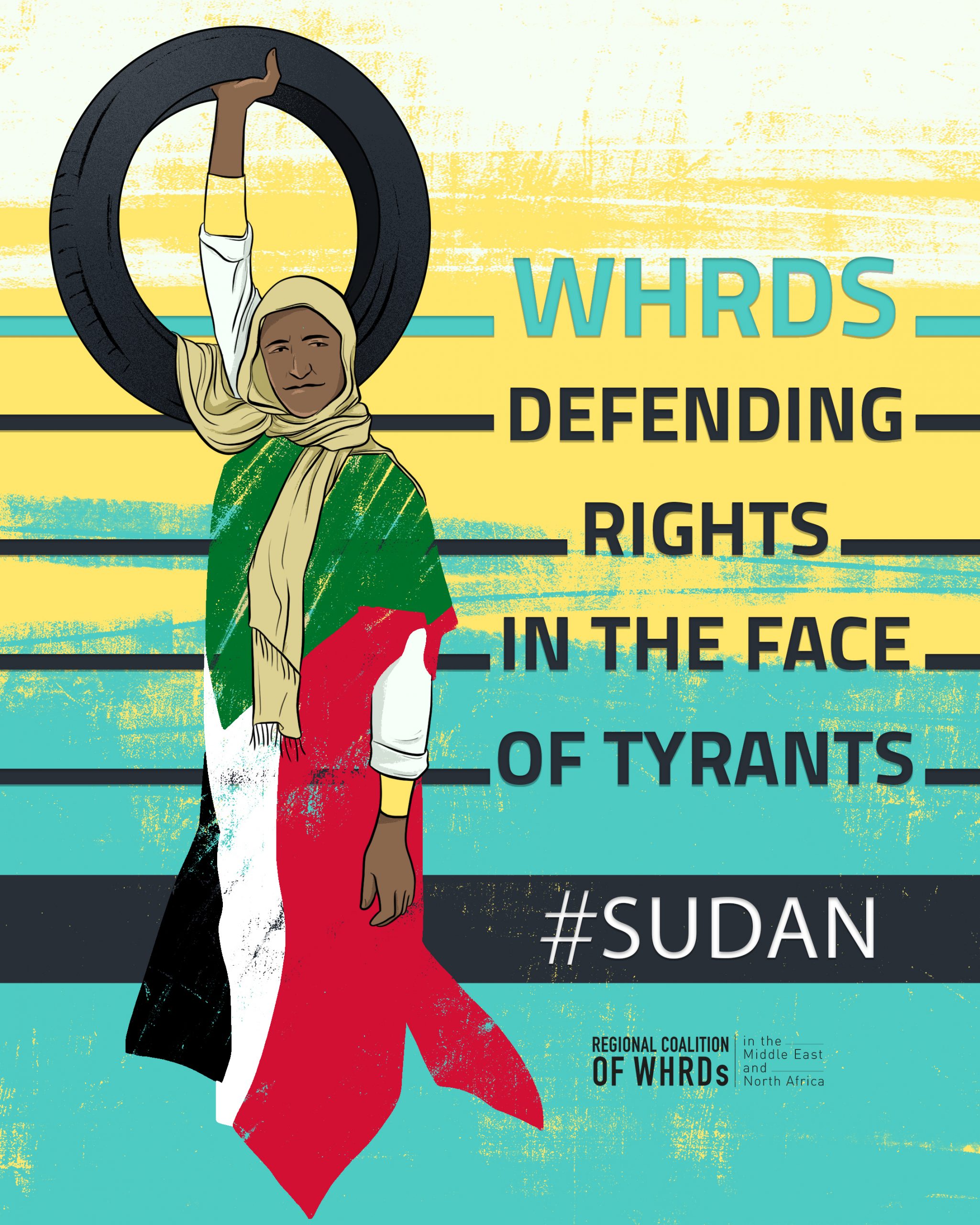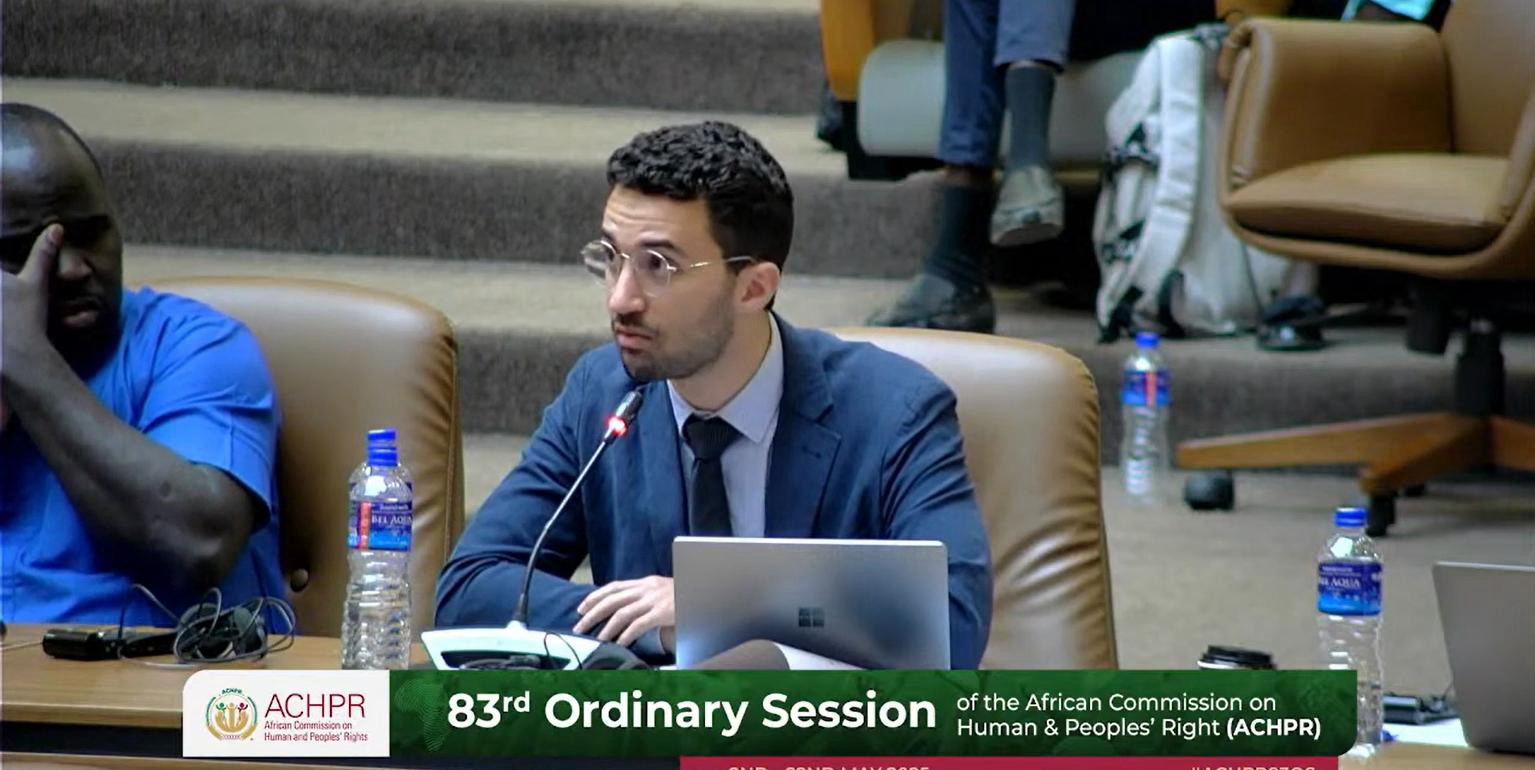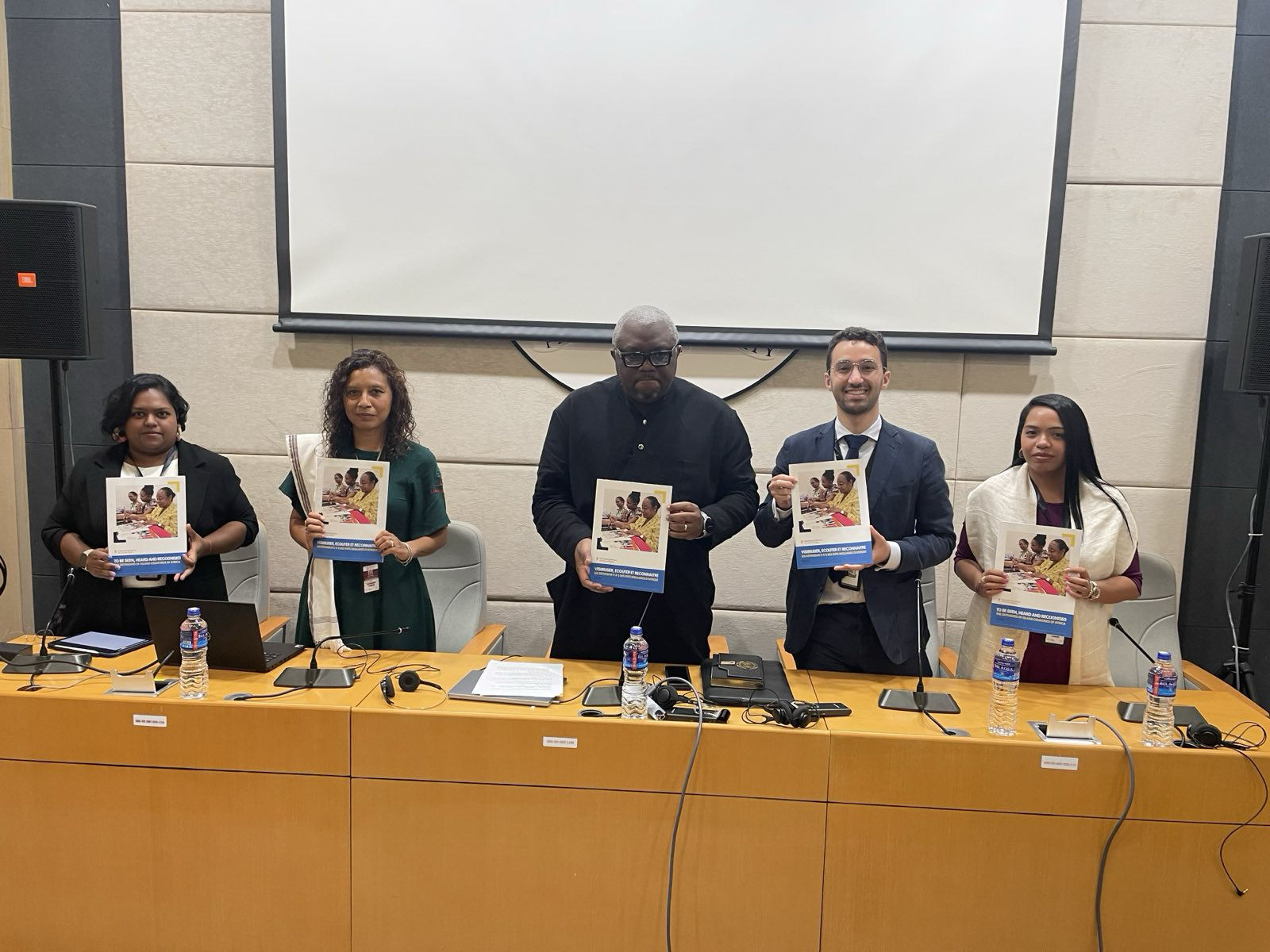On 7 March 2022, ISHR delivered a joint statement during the enhanced interactive dialogue on the report of the High Commissioner on Sudan on behalf of the MENA Women Human Rights Defenders Coalition, Sudan Women Rights Action and Nora Center for Combating Sexual Violence. The statement highlighted the grave human rights violations against women and women human rights defenders (WHRDs) in their advocacy for rights and freedoms in Sudan.
Since the 25 October 2021 coup, the state of human rights in Sudan has greatly deteriorated, causing a sharp reversal from the progress that had been made under the Transitional government. The declaration of a state of emergency held back vital progress towards democracy and respect for human rights and continues to jeopardize the realization of the aspirations of the Sudanese people.
Sudanese protesters, under the leadership of women groups and WHRDs, continue taking to the streets to protest against the military coup and the gross violations of human rights, and are demanding accountability and democratic transformation. In our joint statement delivered at the HRC, we highlighted that 2 women protestors have been killed, dozens injured, detained and prosecuted.
According to the report presented by Mr. Alaaeldin Awad Mohammed Nogoud, Member of the Sudanese Medical Consultants Committee and Founding Member of Sudanese Unified Doctors’ Office, there have been 86 lives lost. These were either shot by security forces using live ammunition, injured by teargas cannisters thrown at them or run over by military vehicles. Approximately 2,756 persons have been injured. The security forces use excessive force to stop protestors and the military coup government has worsened the situation by giving them temporary immunity and freedom from prosecution. There have been 6 incidents where they have attacked hospitals and in one instance, throwing teargas cannisters into operating and emergency rooms. Doctors and medical personnel are assaulted at their place of work, or on the streets when carrying out their duties.
There has also been documentation of about 37 cases of rape, with 2 against male victims. Women in conflict areas of Darfur, Nuba Mountains and other conflict zones are facing rising violence. In the last 3 months, militia attacks and intercommunal conflicts have resulted in displacement of thousands of families, mostly women and children. Darfur region has witnessed increase in sexual violence perpetuated against women and girls.
These appalling attacks are seen as ways of deterring and dissuading women protestors from demanding for their rights, as they are taking place in the context of continuing impunity, with repression of freedom of expression and assembly. Over 70 journalists have been assaulted and their equipment destroyed. Internet shutdowns were also reported.
The High Commissioner for Human Rights, Michelle Bachelet in her report, expressed concern over the state of human rights in Sudan. She welcomed the release of 115 people, during the visit of the Expert on Sudan, Mr. Adama Dieng and called upon the Sudanese authorities to cease the use of excessive force and live ammunition against peaceful protestors, respect due process rights, and release all people detained arbitrarily.
During the enhanced interactive dialogue, some States highlighted the continuing human rights violations, as well as women’s rights issues and emphasized the need for respect and protection of their rights.For example, Australia, Albania and the UK raised their concerns about the pattern of violence against women including WHRDs. More broadly, several States called for investigations and accountability including for sexual and gender based violence. Several States also expressed the need to instate a civilian-led democratic government.
Our organisations also called upon the international community to press Sudan to implement its human rights commitments, with particular regard to stopping the killing of peaceful protestors, protecting Sudanese women and WHRDs from violence, ending impunity, ending attacks on medical facilities, releasing all detainees and guaranteeing media freedoms.
Read the full joint statement here.




